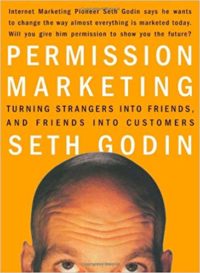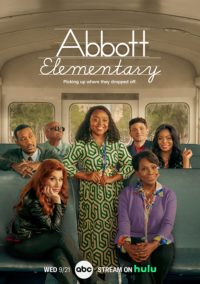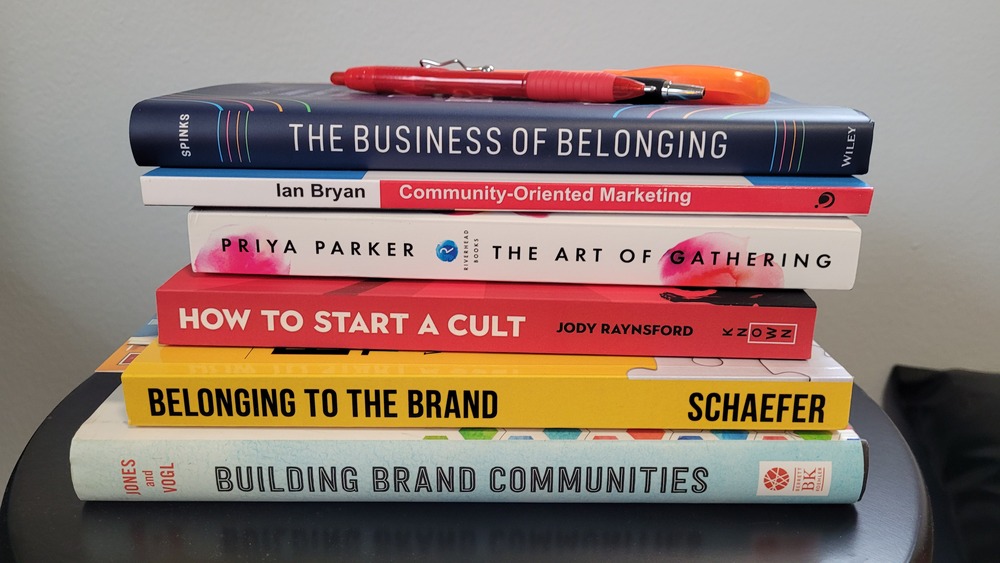Content creation tools driven by artificial intelligence have been a hot topic this year. The meteoric rise of ChatGPT has spurred debate over whether this is going to make people’s jobs easier or eliminate them altogether. (Spoiler alert: It’s probably going to be a bit of both.)
Last week, AI officially disrupted our industry as Spotify introduced an AI DJ and Futuri launched a new product called RadioGPT. Cue the Buggles-inspired headlines.
For the past eight years, I have taught radio stations how to implement a strategy called Content Marketing. The strategy is simple: Create compelling content, attract an audience, and then monetize that audience.
Once upon a time, in order to create content that could reach a massive audience, you needed expensive equipment, like a printing press, a television studio, or a radio tower. You also need a staff with lots of expertise to run this equipment. As a result, the barrier to entering the media game was high.
With the rise of the internet, the tools needed to reach a mass audience got cheaper and easier to use. Today, audiences have millions of entertainment options to choose from, from TikToks to YouTube videos to Discord discussions. And that’s before the oncoming onslaught of AI-created content. According to a report from Europol, “Experts estimate that as much as 90% of online content may be synthetically generated [by A.I.] by 2026.” That’s only three years away!
So what does it mean when the barrier to entry in the media game is so low?
Content Will No Longer Be King
 In his seminal book Permission Marketing, Seth Godin explained that the finite resource that marketers (and media outlets) are competing for is people’s attention. The competition for that scare resource has only gotten fiercer in the quarter century since Godin’s book was published. It is now harder than ever to break through. So how do you do it?
In his seminal book Permission Marketing, Seth Godin explained that the finite resource that marketers (and media outlets) are competing for is people’s attention. The competition for that scare resource has only gotten fiercer in the quarter century since Godin’s book was published. It is now harder than ever to break through. So how do you do it?
The conventional wisdom has long been that “Content is King.” In other words, the key to cutting through all the noise is to create content that is better than everything else out there. But how does this work in a world where everyone has the tools to make great content — or at least, content that is good enough that the differences in quality become negligible? When there’s this much content in the world, the differences in quality can become a wash, averaging out so that they are no longer the most useful differentiating factor.
Put another way: To be a king, it’s not enough to have an army and a crown; you have to be the only person in the kingdom with these things. If everybody has their own army and their own crown, it doesn’t mean that everybody is king; it means that nobody is. By the same token, when everybody is carrying a mass media content creation machine in their back pocket, content alone can’t be king.
Recently, Saturday Night Live captured the problem of too much content as it applies to movies brilliantly in a sketch with Pedro Pascal:
I subscribe to Netflix, Hulu, Amazon Prime, HBOMax, Apple TV, and Disney+. Invariably, I log into one of these streaming services and am confronted with hundreds of shows and movies that I have never heard of before, and I am immediately struck with choice paralysis. At least once a month, instead of watching a movie, I spend an evening watching trailers and cross-referencing them with Rotten Tomatoes scores, then saving the most promising contenders to my watchlist. By the time I get done with this, it’s too late to start a show, so I just go to bed. It’s a highly inefficient process.
How do you filter through this much content?
Community as a Content Filter
Algorithms are one way to filter through content. Google became a multibillion dollar company by developing an algorithm capable of surfacing the content people want. TikTok has grown quickly in large part because its algorithm is so good at learning what resonates with its users. But algorithms aren’t the only way to filter content.
 Over the past several years, every time I have gathered with other people, there has been a point when the conversation turns to what we’re watching lately. It’s how I learned about Abbott Elementary, The Bear, Wednesday, The Last of Us, Everything Everywhere All at Once, and all of my other recent favorites.
Over the past several years, every time I have gathered with other people, there has been a point when the conversation turns to what we’re watching lately. It’s how I learned about Abbott Elementary, The Bear, Wednesday, The Last of Us, Everything Everywhere All at Once, and all of my other recent favorites.
In other words, I use my community to filter through the content choices that I have. We see this phenomenon in other places as well. For example, we know that word of mouth is one of the top ways that people discover new podcasts. Community has become a content filter.
The role of community becomes even more important when you have content that you want people to keep coming back for, like a radio station, rather than something that’s once-and-done, like a movie. Even if a community isn’t what initially attracts people, it can be the the reason that people return over and over again. I watched episode after episode of both Lost and Game of Thrones even after the shows took a turn for the worse in later seasons in part because I wanted to talk to my friends about it.
What Is Community?
Too often, people use the word “community” incorrectly. Your radio station’s audience is not a community. Your email database is not a community. Your Instagram following is not a community.
A community is a group of people who gather together for a shared purpose. When you build a community, you are creating a space for community members to gather. This space can be physical, virtual, or both.
In other industries, companies have started to realize that community is valuable for a wide variety of reasons: finding new customers; ensuring the success of existing customers so they keep coming back; product development; employee recruitment; employee retention; reputation management; etc. In the coming years, the business case for building a community around a brand is only going to grow stronger. The organizations that are focused on community now are streets ahead.

Yet the skills required to build a successful community are not the same skills required to create compelling content. Instead, the skillset is similar to the one required to host a party: you need to get people to show up, keep everybody safe, kick out the riff-raff, make introductions, make sure everybody is having a good time, etc.
What does all this have to do with artificial intelligence? AI doesn’t possess any of the skills necessary to build community. AI may be able to write a blogpost, draw a picture, or do an on-air break, but it can’t host a party.
This means two things: First, if your radio station can build a community, it is doing something that can’t be replaced by AI. Second, if you as a radio station employee can build a community, your job can’t be replaced by AI.
Career Advice for the Oncoming A.I. Wave

Perry Simon of All Access recently wrote a column about what A.I. means for on-air personalities:
“What does this mean for you? Remember, this is entirely about money. It’s about saving your salary, and your benefits, and that’s it. It’s not about making good radio, even if the platform they use can potentially do that. It’s all about cost-cutting. They need you, but they want to save money more than they care about you.”
If you do something that A.I. can’t do — for example, if you’re a journalist or you host a talk or morning show — then you are probably safe for the time being. The future is less clear for other DJs.
As a content creator, I recommend that instead of shunning AI tools, you learn to use them. Just as the industry embraced digital audio workstations and voicetracking, it will embrace AI. Those who know how to use it effectively are more likely to be employed than those who don’t.
Beyond that, I encourage you to develop new skills that can’t be replicated by AI. I would put community building at the top of the list. Although the job title of “community manager” has existed in other industries — mostly tech — for over a decade, companies are just now starting to realize the full value that community can bring to an organization. Eventually, radio companies will come to the same conclusion. You have an opportunity to position yourself for the future.
Radio Stations Should Focus on Community Building Now
Just as community building offers a way for employees to become essential to their organizations, community also offers an opportunity for radio stations to become an essential part of the lives of their listeners. In many ways, radio is better positioned to embrace community than other organizations because audio is so adept at building emotional connections. People feel like they are friends with their favorite radio personalities even if they’ve never met.
As if radio stations didn’t have enough competition for people’s attention, there’s an onslaught of AI-created content coming. Radio’s best opportunity is to not just create the content, but also build the community that people use to filter through content. By doing so, radio stations can stay a relevant part of listeners’ lives.
- A Simple Digital Treat to Thank Your Radio Listeners This Thanksgiving - November 13, 2023
- Interview Questions When Hiring Your Radio Station’s Next Digital Marketing Manager - November 6, 2023
- A Radio Conversation with ChatGPT: Part 2 – Promotions - October 30, 2023





Leave a Reply